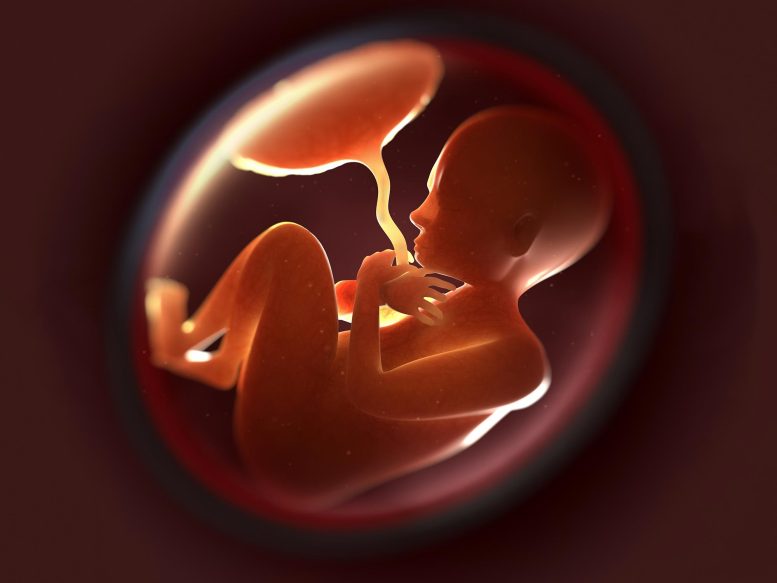
The researchers discovered three genes, MCM5, FGGY, and DDX60L, that are strongly linked to the risk of developing eggs with an abnormal number of chromosomes when the genes mutated.
In order to shed light on the genetic cause of female infertility, Rutgers researchers have combined genomic sequencing with machine learning techniques
According to Rutgers University research, specialized analysis of a woman’s genome may be used to predict her likelihood of experiencing one of the most common forms of miscarriages.
This knowledge, according to scientists, could help patients and doctors make more educated judgments about their reproductive options and fertility treatment strategies.
Rutgers researchers describe a technique that combines genomic sequencing with machine-learning methods to predict the likelihood of a woman miscarrying due to egg aneuploidy – a term that describes a human egg with an abnormal number of chromosomes – in a recent study published in the journal Human Genetics.
Infertility is a serious reproductive health condition that affects around 12% of women of reproductive age in the United States. Aneuploidy in human eggs causes early miscarriage and in vitro fertilization (IVF) failure and accounts for a major percentage of infertility.
Recent research has demonstrated that some genes predispose specific women to aneuploidy, although the precise genetic origins of aneuploid egg production remain unknown. The Rutgers research is the first to assess how strongly particular genetic variants in the mother’s genome predict a woman’s infertility risk.
“The goal of our project was to understand the genetic cause of female infertility and develop a method to improve the clinical prognosis of patients’ aneuploidy risk,” said Jinchuan Xing, an author of the study and an associate professor in the genetics department at the Rutgers School of Arts and Sciences. “Based on our work, we showed that the risk of embryonic aneuploidy in female IVF patients can be predicted with high accuracy with the patients’ genomic data. We also have identified several potential aneuploidy risk genes.”
Working with Reproduction Medicine Associates of New Jersey, an IVF clinic in Basking Ridge, N.J., the scientists were able to examine genetic samples of patients using a technique called “whole exome sequencing,” which allows researchers to home in on the protein-coding sections of the vast human genome. Then they created software using machine learning, an aspect of artificial intelligence in which programs can learn and make predictions without following specific instructions. To do so, the researchers developed algorithms and statistical models that analyzed and drew inferences from patterns in the genetic data.
As a result, the scientists were able to create a specific risk score based on a woman’s genome. The scientists also identified three genes – MCM5, FGGY, and DDX60L – that, when mutated, are highly associated with a risk of producing eggs with aneuploidy.
While age is a predictive factor for aneuploidy, it is not a highly accurate gauge because aneuploidy rates within individuals of the same age can vary dramatically. Identifying genetic variations with more predictive power arms women and their treating clinicians with better information, Xing said.
“I like to think of the coming era of genetic medicine when a woman can enter a doctor’s office or, in this case, perhaps, a fertility clinic with her genomic information, and have a better sense of how to approach treatment,” Xing said. “Our work will enable such a future.”
The study was funded by the Eunice Kennedy Shriver National Institute of Child Health and Human Development, the National Institute of General Medical Sciences, and the National Institute of Mental Health.
Reference: “Predicting embryonic aneuploidy rate in IVF patients using whole-exome sequencing” by Siqi Sun, Maximilian Miller, Yanran Wang, Katarzyna M. Tyc, Xiaolong Cao, Richard T. Scott Jr., Xin Tao, Yana Bromberg, Karen Schindler and Jinchuan Xing, 26 March 2022, Human Genetics.
DOI: 10.1007/s00439-022-02450-z

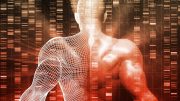
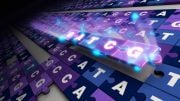
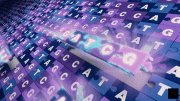
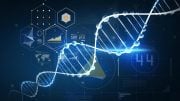
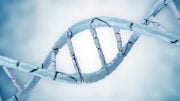


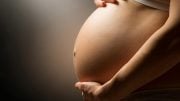
Be the first to comment on "Genome Analysis Now Allows Scientists To Predict if You Will Have a Miscarriage"